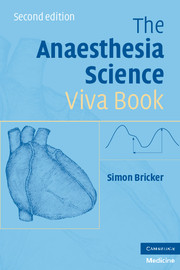Book contents
1 - Advice on answering clinical science viva questions
Summary
The clinical science viva
The format of the Final FRCA examination has remained materially unchanged since its inception in 1996, and the clinical science viva continues to test ‘the understanding of basic science to the practice of anaesthesia, intensive therapy and pain management’. The College has always included the proviso that ‘it is accepted that candidates will not have acquired a detailed knowledge of every topic during the period of recognised training’, but this has on occasion contrasted uneasily with the bitter perception of at least some candidates that they had been examined almost to destruction on scientific minutiae. This perception, against a background of muted unease about this section of the exam, has been acknowledged by the College, which has decided therefore to introduce greater clinical emphasis into the science oral. The change of emphasis is relatively subtle, because both the College and its examiners remain reluctant to dilute the rigour of what for most candidates will be the last examination in anaesthesia that they are likely to take. Nevertheless, the tenor of many of the questions has now altered so that the clinical applications of the underlying science have more prominence than hitherto. The questions continue to have two parts: the basic scientific principles and their clinical application, but many of the topics will now be introduced via a clinically orientated question that is intended to reassure you that the subject does have anaesthetic relevance.
- Type
- Chapter
- Information
- The Anaesthesia Science Viva Book , pp. 1 - 12Publisher: Cambridge University PressPrint publication year: 2008



